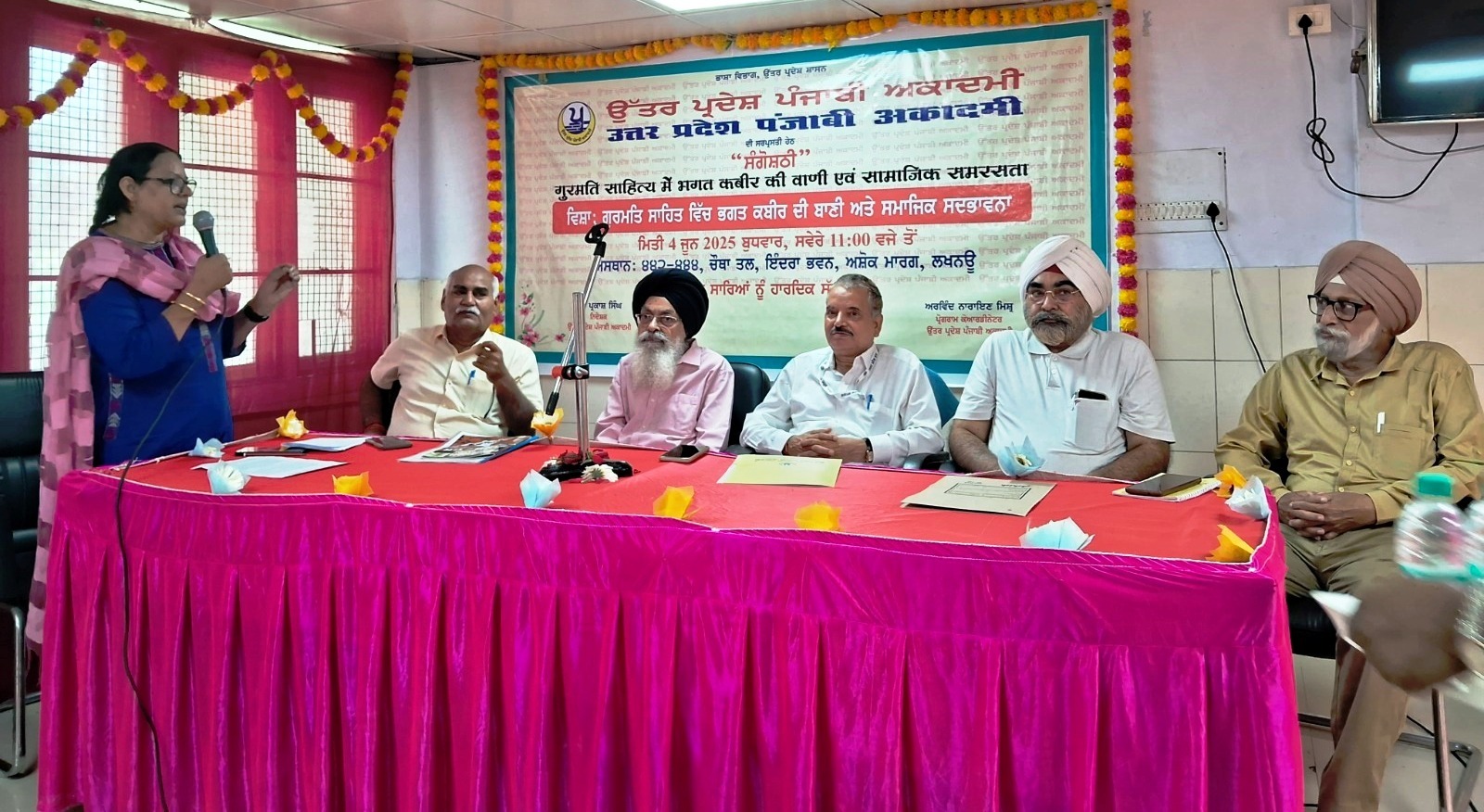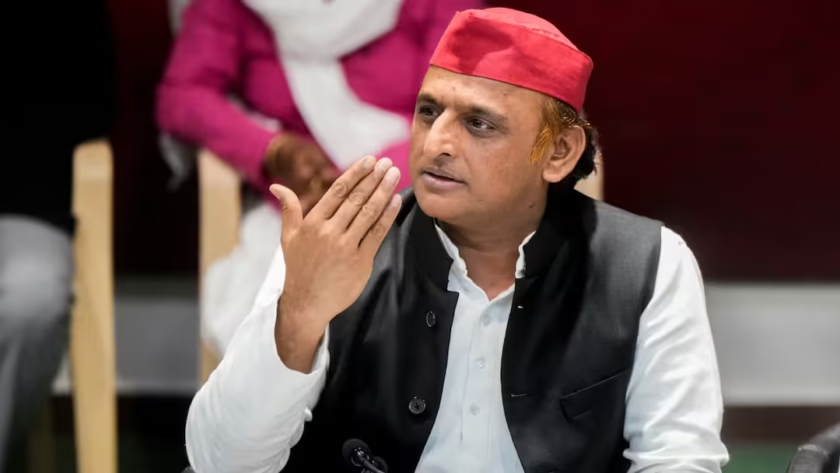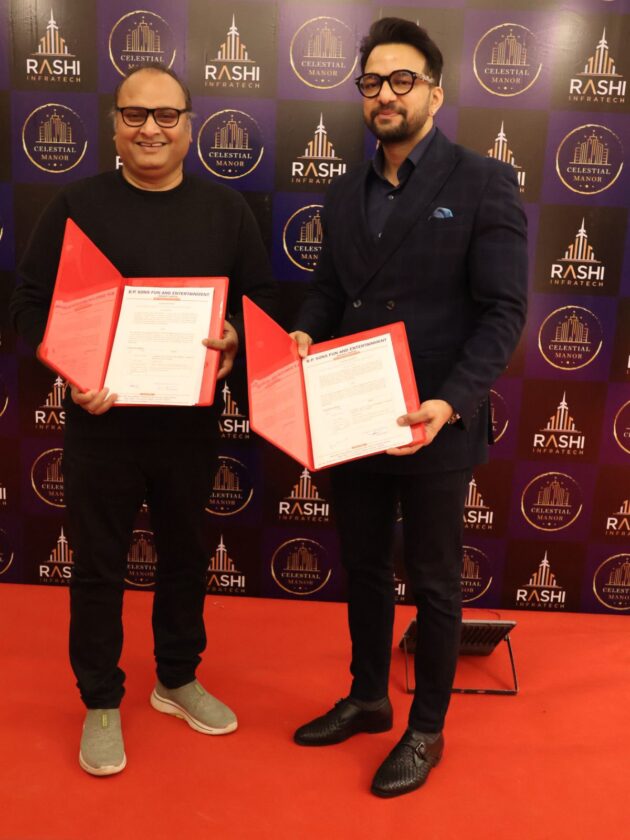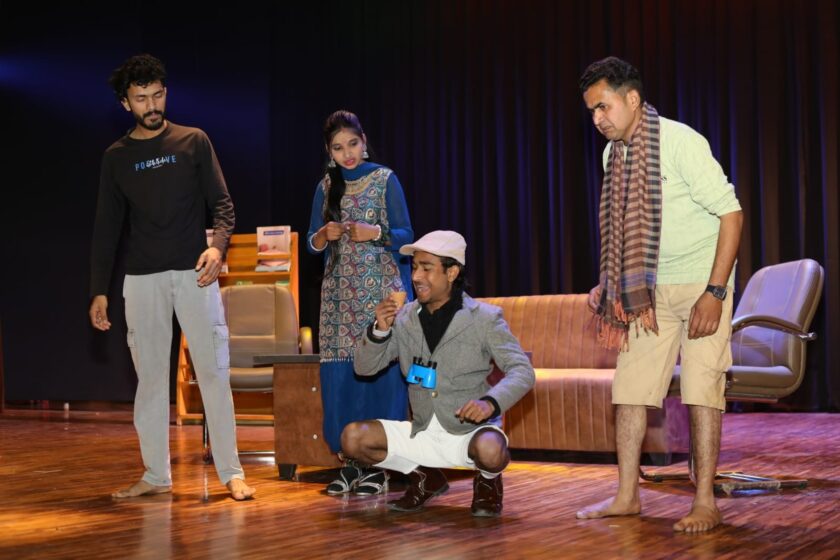Lucknow — The Uttar Pradesh Punjabi Academy hosted a thought-provoking seminar titled “Bhagat Kabir’s Voice in Gurmat Literature and Social Harmony” at its Indira Bhawan office on Wednesday. Scholars, writers, and spiritual thinkers gathered to discuss the timeless relevance of Kabir’s teachings in Gurmat literature and their powerful message of unity and reform.
Academy Director Om Prakash Singh welcomed the dignitaries and honored them with traditional shawls and mementoes for their contribution to the discourse.
Speaking at the seminar, Dr. Dalbir Singh, a senior scholar from Kanpur, emphasized that Gurmat literature, rooted in the Guru Granth Sahib, conveys the ideals of unity, equality, and devotion to God. Among the many saint-poets featured in the scripture, Bhagat Kabir’s verses stand out for their deep spiritual insight and call for social reform.
Renowned Punjabi thinker Narendra Singh Monga described Kabir as a spiritual revolutionary who bridged divides in a fragmented society. “By teaching the essence of love in just ‘two and a half letters’, Kabir transformed the religious and cultural landscape of India,” he said. Monga highlighted how Kabir opposed idol worship, ritualism, and fear-driven religiosity, urging people to seek divinity within and become fearless seekers of truth.
Poet Trilok Singh praised Kabir for promoting nirguna bhakti (worship of the formless God). He recited lines like “Pahan pooje Hari mile, to main poojun pahaar” to show Kabir’s defiance of idol worship, and “Kabira khada bazaar mein, sabki maange khair” to illustrate his universal goodwill.

From Varanasi, scholar Ajay Kumar Pandey remarked that Kabir’s voice added rich social context to Gurmat philosophy. “His words remain relevant, urging society to break free from outdated customs and adopt equality, love, and truth as core values,” he said.
Dr. Rashmi Sheel underlined that Bhagat Kabir’s verses were extensively included in the Guru Granth Sahib to reflect Sikhism’s inclusive nature. “His teachings strengthened Gurmat values like Naam Japo, Kirat Karo, and Vand Chhako, fostering compassion and equality in daily life,” she noted.
The seminar concluded with reflections from other distinguished participants including Arvind Narayan Mishra, Meena Singh, and Anju Singh, who emphasized Kabir’s lasting legacy as a poet-saint who continues to inspire across generations and faiths.










